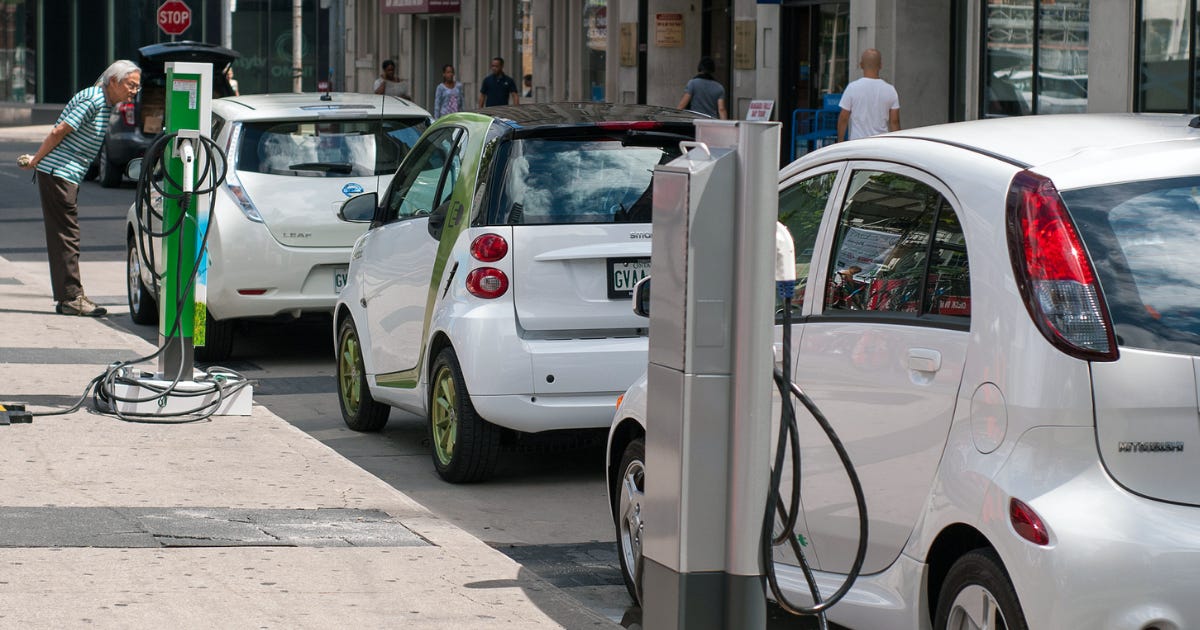Schulz urges Ottawa to scrap “impractical” EV mandate following 60-day review
Alberta’s Environment Minister Rebecca Schulz is demanding the Trudeau government scrap its electric vehicle mandate, arguing the “impractical” policy will destroy jobs, hike costs, and more.
Alberta’s Environment Minister Rebecca Schulz is demanding the Trudeau government scrap its electric vehicle mandate, arguing the “impractical” policy will destroy jobs, hike costs, and isolate rural communities.
In a letter posted to X on Tuesday to federal Environment Minister Julie Dabrusin, Schulz said the Liberal government’s 60-day review of the mandate confirmed “clear and unanimous feedback” from provinces, industry and consumers that the policy must be abandoned.
“Over those sixty days — and for many years before that, your government has heard the same clear message from provinces, territories, municipalities, industry, and consumers alike: this mandate is impractical, expensive, and must be abandoned,” wrote Schulz. “Rarely has a government received such clear and unanimous feedback from such a broad range of Canadians.”
She added that if the Liberals ignore the overwhelmingly negative feedback, they would be responsible for lost investment and manufacturing jobs, more expensive vehicles and stranding Canadians in rural and Northern Canada.
The EV mandate would also overload the electrical grid, already under strain, put the safety of Canadians at risk in harsh winters and limit consumer choice.
“Canadians want practical, balanced, affordable solutions — not costly experiments driven by ideology,” she continued. “They want policies that strengthen our economy, protect jobs, and reflect the realities of this country, not one-size-fits-all mandates.”
Schulz urged Dabrusin to move past the divisive approach previously championed by former environment minister Steven Guilbeault.
Prime Minister Mark Carney paused the mandate in September, announcing a 60-day review to “identify future flexibilities and ways to reduce costs.”
The policy would have required 20% of new vehicle sales in 2026 to be electric, rising to 60% by 2030 and 100% by 2035.
“To add flexibility to the automotive sector, we will remove the 2026 electric vehicle availability standard,” Carney said at the time. “This will provide immediate financial relief to automakers at a time of increased pressure on their competitiveness.”
Conservative Leader Pierre Poilievre called the move a “clumsy retreat,” saying it showed Carney “finally admitted the Conservatives were right.”
“Today he’s flip-flopped after being a passionate advocate for banning gas-powered vehicles,” Poilievre said. “He’s doing a clumsy retreat, saying that he’s going to delay this mandate, so now businesses who would otherwise consider investing in auto-making here in Canada will have to put that investment on hold while Mark Carney dithers for another year.”
Schulz has been one of the most vocal provincial opponents of the mandate, previously urging Canadians to “call your MP” and pressure Ottawa to abandon what she described as an “unworkable one-size-fits-all” policy.
“Even if you could afford it, Canada doesn’t have the charging network to support it,” Schulz warned earlier this year. “In rural areas, you would be left stranded. In the cities, there won’t be enough chargers for everyone.”
Alberta’s Environment Ministry previously told True North it would use “every legal tool” to stop the policy, calling the regulations “unconstitutional.”
The ministry also highlighted that the Liberals previously imposed a 100% tariff on Chinese-made EVs. As a consequence, China slapped a 75.8% tariff on Canadian canola — a $43.7 billion annual industry. China has instead turned to Australia for its canola, abandoning the import of 7.9 million metric tonnes in 2024 that supports 206,000 Canadian jobs.
“These tariffs have a devastating impact on hard-working Albertan farmers, ranchers and food processors, who are caught up in political posturing they want no part in,” said Schulz.
A previous Leger poll highlighted that 71% of Canadians wanted the mandate rolled back.
In her latest letter, Schulz told Dabrusin she had a “real opportunity” to show the government can “listen, learn, and change course.”
“I urge you to seize this moment and put Canadians first,” she wrote.





Carney government not Trudeau government although Trudeau started this fiasco.